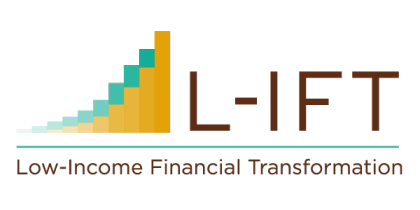Success, struggles, and why access to finance still decides who survives
In Ethiopia, entrepreneurs hustle daily to keep their dreams alive, but what happens when a single crisis can shut their doors overnight? This case study follows five small business owners in cosmetics retail, thrift shops, dairy retail, baltena (spices and processed foods shop), and poultry farming who turned to the FINBIT app for record-keeping and making smarter financial decisions. While FINBIT helped them to track every coin, it also revealed a deeper reality. Good record-keeping strengthens a business, but when crises strike, access to finance often determines whether an entrepreneur bounces back or shuts down for good.
Stories behind every transaction
- A cosmetic retailer’s struggle with cash flow
“I used to feel like money was disappearing,” recalls a young cosmetics shop owner in Addis Ababa. She had no system to track daily sales and expenses, making it impossible to calculate profit. When she started using FINBIT, she could finally see which products sold best and adjust her stock purchases accordingly. “Now, I avoid overstocking slow-moving products and focus on what sells. My profit is growing.”
- A thrift shop owner turns data into profit
“Some days I sell a lot, other days almost nothing”
For a thrift shop owner, unpredictable sales made it difficult to plan. By tracking sales on FINBIT, he noticed that sales peaked at the end of the month, which prompted him to run payday promotions. “My revenue increased. Now, I feel in control of my business.”
- A dairy retailer’s struggles with managing credit
A dairy retailer struggled with credit sales, stating that “customers promised to pay but often delayed or “forgot”. I couldn’t argue because I had no records”. After using FINBIT to track credit transactions, she now confidently reminds customers of their debts. “I no longer lose money because of forgotten debts.”
- Baltena business scaling with better inventory control
A woman selling baltena often bought too much stock, losing money when goods expired, or too little, missing sales. “Sometimes, I bought too much and lost money when products expired.” With FINBIT, she is now informed by sales data. “Now, I know exactly when to re-stock and which products sell best.”
- A poultry farmer finds stability through tracking every cost
For a poultry farmer, rising feed prices made the business risky. “Before FINBIT, I was losing money without realizing it. Now, I record everything and plan better,” she reflected. By tracking expenses, she learned when to buy feed in bulk to save costs.
FINBIT has become an essential tool for many entrepreneurs, helping them organise their finances and understand their businesses better. Even so, there are difficulties that financial tracking alone cannot solve.
Beyond recordkeeping: When crises strike
One poultry farmer’s thriving business collapsed overnight when disease wiped out her flock. “I had no savings, no way to pay rent. If I could get funding, I would restart. Poultry farming is my passion, but right now, I have nothing.”
Another baltena seller lost everything to a family medical emergency. “My grandchild got sick, and I spent all my savings on treatment. I closed for three months. Now I’m back, but my shelves are empty. Without a loan, I can’t rebuild.”
Even with good record keeping in place, rebuilding after a crisis proved challenging. Strong financial records help guide day-to-day decisions, yet it is access to finance that allows entrepreneurs to recover when life disrupts their work. As one entrepreneur put it, “FINBIT helped me manage my money, but when a crisis hit, I had nothing to fall back on. What I need now is a way to rebuild.”
The FINBIT solution: Insight, resilience, and growth
Across the stories of these Ethiopian entrepreneurs, some common struggles stood out. Many faced poor financial tracking, with money “disappearing” unnoticed and no clear picture of profits or losses. FINBIT stepped in with digital transaction records, making it possible to track every coin and understand where money was going. Others struggled with managing credit, as customers delayed payments or “forgot” their debts. With FINBIT’s customer credit tracking, business owners could confidently remind buyers of what they owed, leading to faster repayments and fewer losses.
For many, unpredictable sales made planning nearly impossible. By using FINBIT’s data insights, entrepreneurs could spot patterns like end-of-month spikes and adjust their strategies, leading to smarter promotions and pricing decisions. Inventory mismanagement was another challenge. Buying too much and losing money when goods expired, or running out of stock when demand peaked. With FINBIT’s sales analysis tools, waste was reduced and restocking became more efficient.
But perhaps the most critical barrier was access to finance needed to grow the businesses or to recover after shocks. For sudden crises like illness, medical bills, or livestock losses, the absence of emergency financial support often meant business closure or long periods of stagnation. That’s why FINBIT is evolving beyond record-keeping. By partnering with financial service providers and integrating a loan platform directly within the app, we are creating a system that seamlessly connects entrepreneurs to the funding they need. This integrated approach is designed to ensure FINBIT supports real resilience and long-term growth.
Conclusion: Financial tools create clarity, but finance unlocks survival and growth
The experiences of these entrepreneurs show that while FINBIT strengthens daily business management by improving financial clarity, tracking, and decision making, resilience depends on access to finance when unexpected hardship occurs. Illness, livestock losses, and family emergencies can undo progress overnight, even for those who keep strong records. That is why FINBIT is expanding beyond record keeping to partner with financial institutions and connect entrepreneurs to loans and emergency support. When clear financial insight is paired with accessible funding, business owners are better positioned to recover, rebuild, and sustain their livelihoods. This is the path from survival to resilience.
